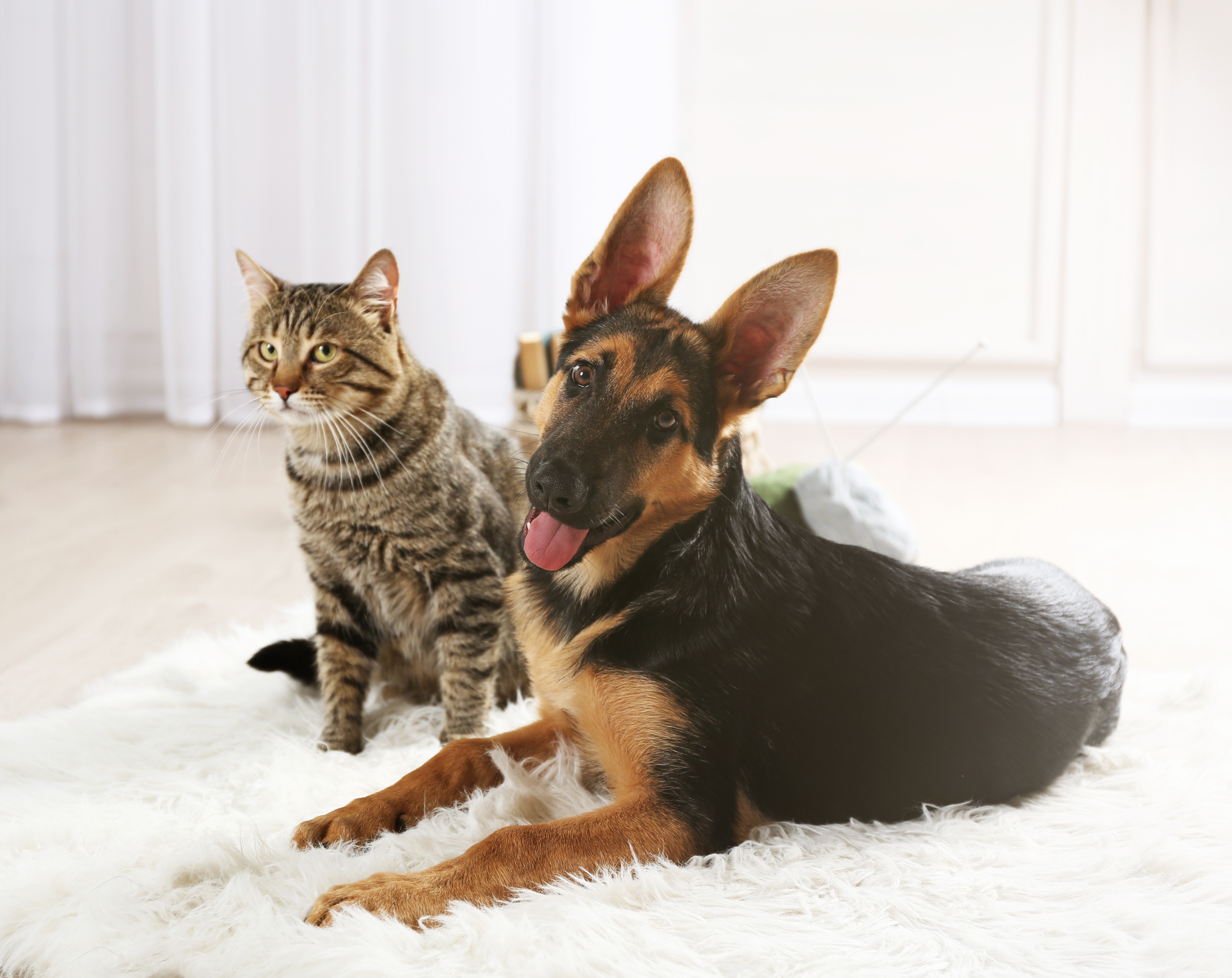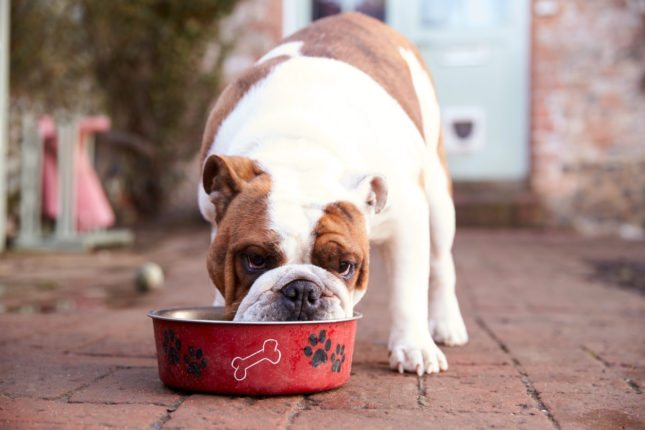We humans take pride in our virtuous vegan diets, from scrutinizing food labels to concocting fabulous recipes for plant-based versions of favorite foods (tofu lasagna, anyone?). And because we love our pets, some of us think that it’s a wise decision to feed Fido and Fluffy the same vegan diets that we eat.
But do dogs and cats really do well on vegan diets? Or are we barking up the wrong tree to give our pets plant-based meals and treats?

Researchers Investigate Plant-Based Diets For Pets
A recent study analyzed four different research projects on whether vegan and vegetarian diets were nutritionally safe for cats and dogs.
“It is entirely possible for companion animals to survive, and indeed thrive, on vegetarian diets,” concluded the researchers. “However, these must be nutritionally complete and reasonably balanced, and owners should regularly monitor urinary acidity and should correct…through appropriate dietary additives, if [needed].”
Cats Versus Dogs
Several veterinary experts told WebMD that cats in particular tend to need animal-based rather than plant-based diets.
Lew Olson, PhD, author of Raw and Natural Nutrition for Dogs, compared feeding a vegan diet to a cat like “feeding my horses meat. You’re taking a whole species of animal and trying to force it to eat something that it isn’t designed to handle.”
Cailin Heinze, VMD, a board-certified veterinary nutritionist and assistant professor of nutrition at Tufts Cummings School of Veterinary Medicine, agreed. She called a vegan diet for cats “really inappropriate.”
Plant-based diets for kitties go “against their physiology and isn’t something I would recommend at all,” added Heinze.
In contrast, Cailin noted that dog owners may turn to vegetarian or vegan diets but only if they are planned “very, very carefully.” Giving a dog a vegan diet leaves “a lot of room for error, and these diets probably are not as appropriate as diets that contain at least some animal protein,” cautioned Cailin.
Understanding The Risks
As an example of the risks of feeding your furry pets a vegan or vegetarian diet, consider taurine. Although dogs can make their own taurine if they get the right type and amounts of protein, cats cannot. And both cats and dogs can experience deficiencies of this important amino acid.
“We did see a case of a cat that almost died as a result of taurine deficiency,” recalled Jennifer Larsen, DVM, PhD, board-certified veterinary nutritionist and assistant professor of clinical nutrition at the University of California, Davis veterinary school.
Even though the cat’s owners were giving their pet a combination of cooked chicken breast with the vegan diet food, the cat lacked enough taurine. That beloved pet had a furry brush with death as a result.
Ultimately, while vegan diets for humans have been shown to be healthy, Olson feels that turning a cat or dog into a vegan isn’t a wise move. “People do this to make themselves happy,” reflected Olson. “It’s not about the animal. When people tell me they want to feed a vegan diet [to a pet], I say, ‘Get a goat, get a rabbit.’”
Futuristic Vegan Pet Foods
But in the future, experts may have a different response. A company called Wild Earth is working on nutritious vegan food for pets.
Company co-founder Ryan Bethencourt told National Geographic that Wild Earth plans to create vegan food for pets that’s high in quality as well as eco-friendly.
The company also is working on getting data to support their pet food plans. Bethencourt is optimistic.
“It’s something we don’t have data for right now, but as you’ve seen with vegan athletes, we think that a non-meat diet will be beneficial to the animals as well, perhaps surprisingly so,” he declared.



